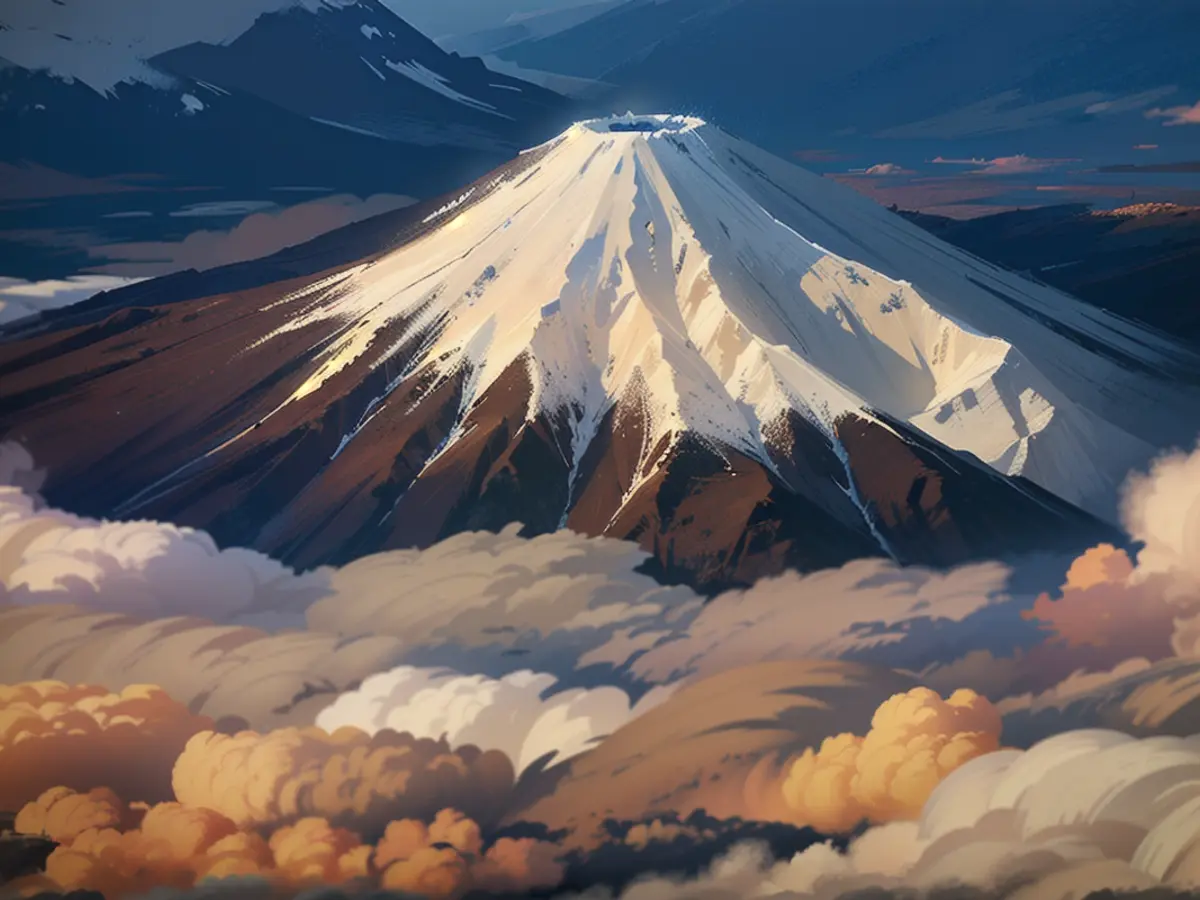Japan enforces fresh regulations for popular attractions.
Japan's beloved Fujisan volcano is seeing an influx of tourists, leading to noticeable litter and overcrowding. To combat this, the government has implemented new regulations for climbing Mount Fuji.
Yamanashi Prefecture announced that starting this season, climbers must reserve their spot on the mountain's busy Yoshida route, which was added to UNESCO's World Heritage List in 2013, through an online system. These climbers will need to pay a fee of 2,000 yen (€12). The remaining 1,000 spots will be available on a first-come, first-served basis. Climbers can choose whether to complete the ascent in a single day or stay overnight in one of the mount's many huts.
This move stems from the growing number of visitors and the increased littering at Fujisan. Governor Kotaro Nagasaki expressed appreciation for the public's cooperation in preserving the volcano in a statement.
While Yamanashi enforces strict rules, Shizuoka Prefecture has attempted a softer approach. The area has encouraged climbers donated 1,000 yen (€6) since 2014. However, they are still exploring other ways to balance tourism and environmental conservation. The Japanese Ministry of the Environment reports that 221,322 people went up the mountain last season.
This growing tourism problem is not unique to Fujisan. Other hotspots, like Japan's Kyoto and Kamakura areas, have been grappling with the impact of excessive visitors. With restrictions lifted due to the pandemic and the depreciation of the yen, more than 25 million tourists poured into Japan last year. The number of visitors is projected to reach 32 million by 2024.
The surge in tourism has already brought issues to nearby villages, such as one that decided to construct a screen to hide Fujisan from photo-taking visitors in front of a supermarket. Crowding at popular destinations is becoming a significant issue in Japan.
Essentially, these regulations have been installed to generate additional revenue for Japan and minimize damage to nature caused by the hordes of tourists flocking to Mount Fuji and other popular sights. The government hopes to strike a balance between welcoming visitors and protecting the country's iconic beauty.
The popularity of Fujisan has become a challenge for local authorities, with tourists flocking to the area to see this breathtaking mountain up close. In light of this, they've created a system that lets climbers secure their spot ahead of time for a fee while reserving 1,000 spots for those who show up on the day of the climb, allowing everyone access. It's an action trying to preserve the beauty of the mountain for generations to come.
Read also:
- Floods: water levels remain critical in many places
- Snow chaos further restricts Bavaria
- Continuous operation in the flood areas
- Flood situation remains tense in many places
The International Union for Conservation of Nature (IUCN) expressed concerns about the impact of increased tourism on Fujisan's ecosystem, as volcanic areas are particularly vulnerable to environmental degradation.
Japan, being a signatory to several international agreements on environmental preservation, is under pressure to ensure that Fujisan's unique geological features are protected for future generations, given its designation as a World Heritage Site by the International Council on Monuments and Sites (ICOMOS).
Source: www.ntv.de






